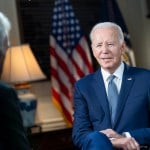We’re making sense of the midterms. Subscribe to our daily newsletter for election context and analysis.
Control of the Senate is still up for grabs, with races in Arizona and Nevada too close to call and Georgia headed to a runoff.
If Republicans take control of the chamber, they could put national abortion bans to a vote. Legislation has already been introduced, including a ban on the procedure after 15 weeks of pregnancy from South Carolina Sen. Lindsey Graham and a bill from Kentucky Sen. Rand Paul that would define the right to life as starting at fertilization. But with most legislative changes currently requiring 60 votes in the Senate, plus a Democrat in the White House, it’s unlikely a Republican-controlled Congress could immediately change federal abortion laws. President Joe Biden has vowed to veto any bills restricting access to the procedure.
If Republicans take back the White House in two years, though, those bills would have a real chance of becoming law, especially if they agree to change the rules around the filibuster to nuke the Senate’s 60-vote threshold. Some aspiring 2024 candidates, notably former Vice President Mike Pence, have already begun campaigning on a national abortion ban.
Polling shows that abortion rights are motivating more voters than ever and that in the wake of Roe v. Wade being overturned, most Americans oppose federal limitations on the procedure. Individual Republican candidates for Congress have been hesitant to discuss their stances on abortion, with some even eliminating references to abortion bans from their campaign materials.
Of the 13 Republicans identified by The 19th as being in competitive races, six have won and four have lost. Some of these candidates have said they believe abortion law should be left entirely up to the states. Others have endorsed a national abortion ban. And, while it’s contradictory to say it should be left to the states and that the federal government should pass a ban, some candidates have indeed argued for both.
- Read Next:
The 19th reached out to all 13 candidates to see where they stand on these issues. The only response came from a spokesperson for Sen. Marco Rubio of Florida, a cosponsor of Graham’s bill. Here’s what each candidate has said, and how they’ve voted on the issue in the past, and the status of the race, according to projections from Decision Desk HQ.
Don Bolduc, New Hampshire (lost)
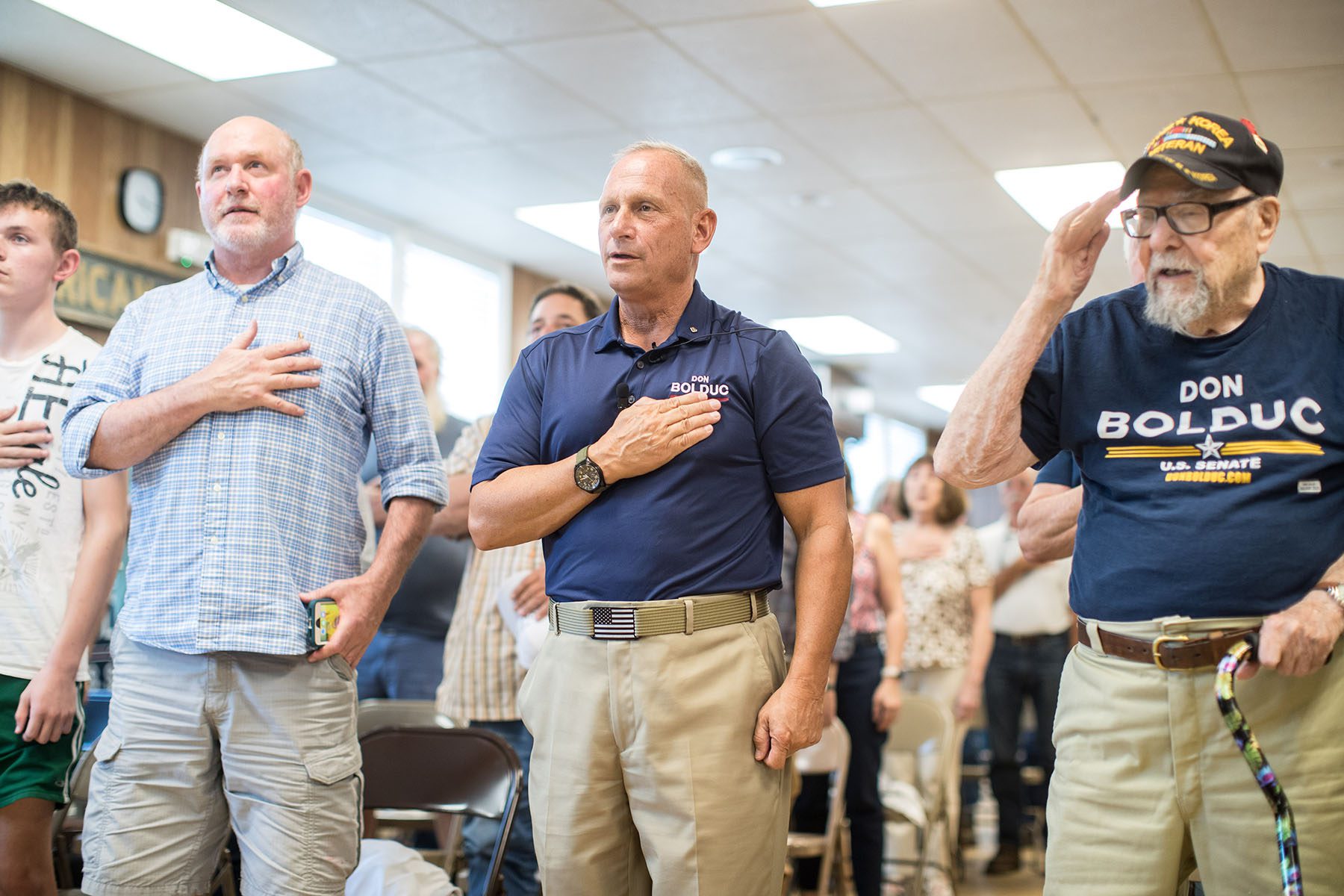
Said abortion should be left to the states: Yes
Backed federal legislation restricting abortions: No
Bolduc told Fox News in September that he would not support Graham’s bill. “The Supreme Court has already decided that this is a state issue. … Women on both sides of the issue will get a better voice at the state level,” he said.
Prior to the state’s Republican primary, the retired Army brigadier general maintained that position but did not directly answer whether he would like to see a federal ban.
“I want to protect life from the beginning to the end. That’s what our health care system is all about and that’s what I think we should be about,” Bolduc said in a debate involving candidates in the state’s Republican primary.
Ted Budd, North Carolina (won)
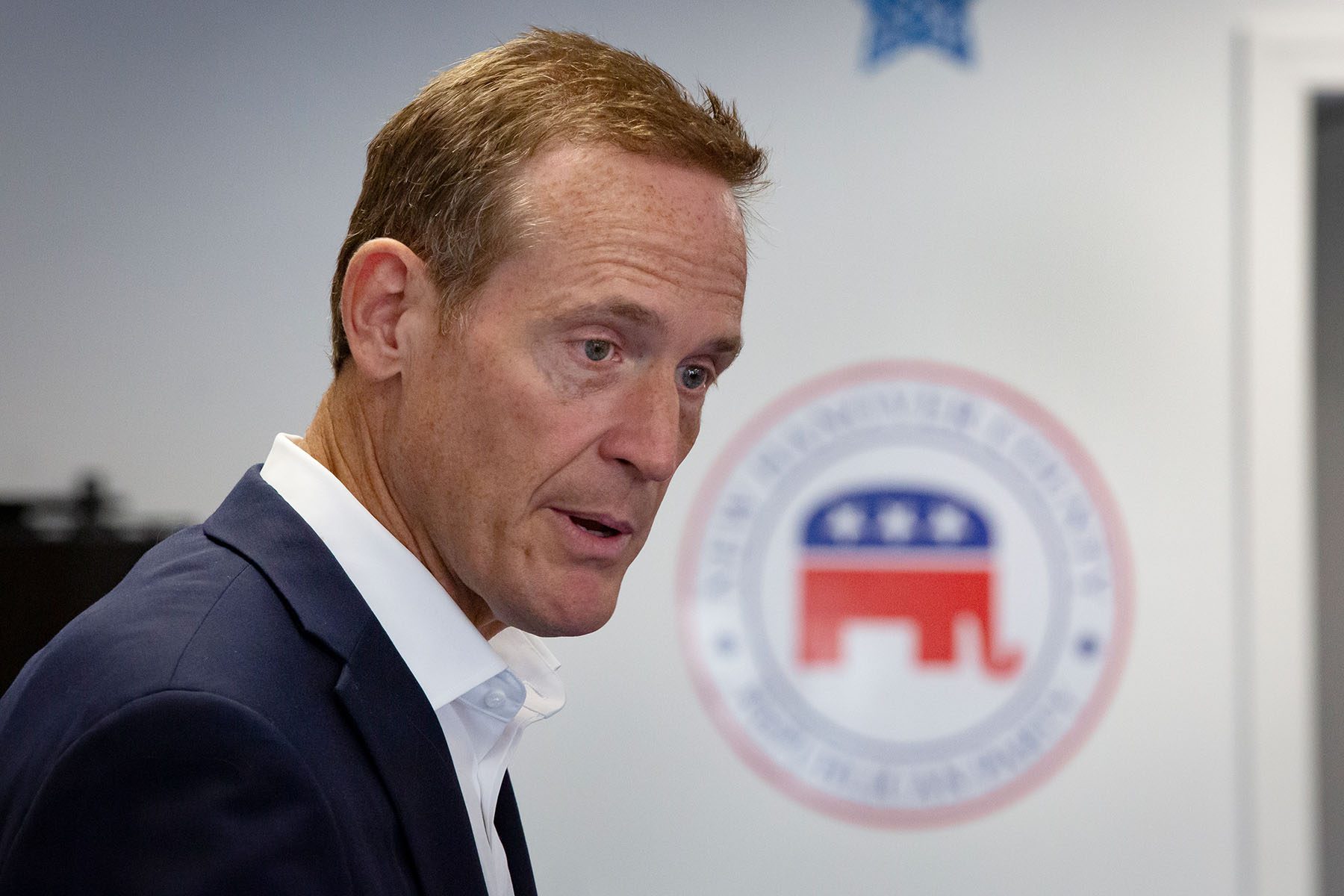
Said abortion should be left to the states: Yes
Backed federal legislation restricting abortion: Yes
Budd said abortion should be returned to the people, but supports additional federal restrictions.
Budd, currently in the U.S. House, is an original cosponsor of the House version of Sen. Rand Paul’s Life at Conception Act, which would ban abortion after “the moment of fertilization,” and the House version of Graham’s bill that would ban abortion after 15 weeks with exceptions for rape and incest.
“The Court’s ruling correctly empowers the people’s representatives in each state to decide how best to protect unborn lives,” Budd said in a statement following the Dobbs decision. “As a conscience-driven pro-life advocate, I will continue to support protections for unborn children everywhere.”
Chuck Grassley, Iowa (incumbent, won)
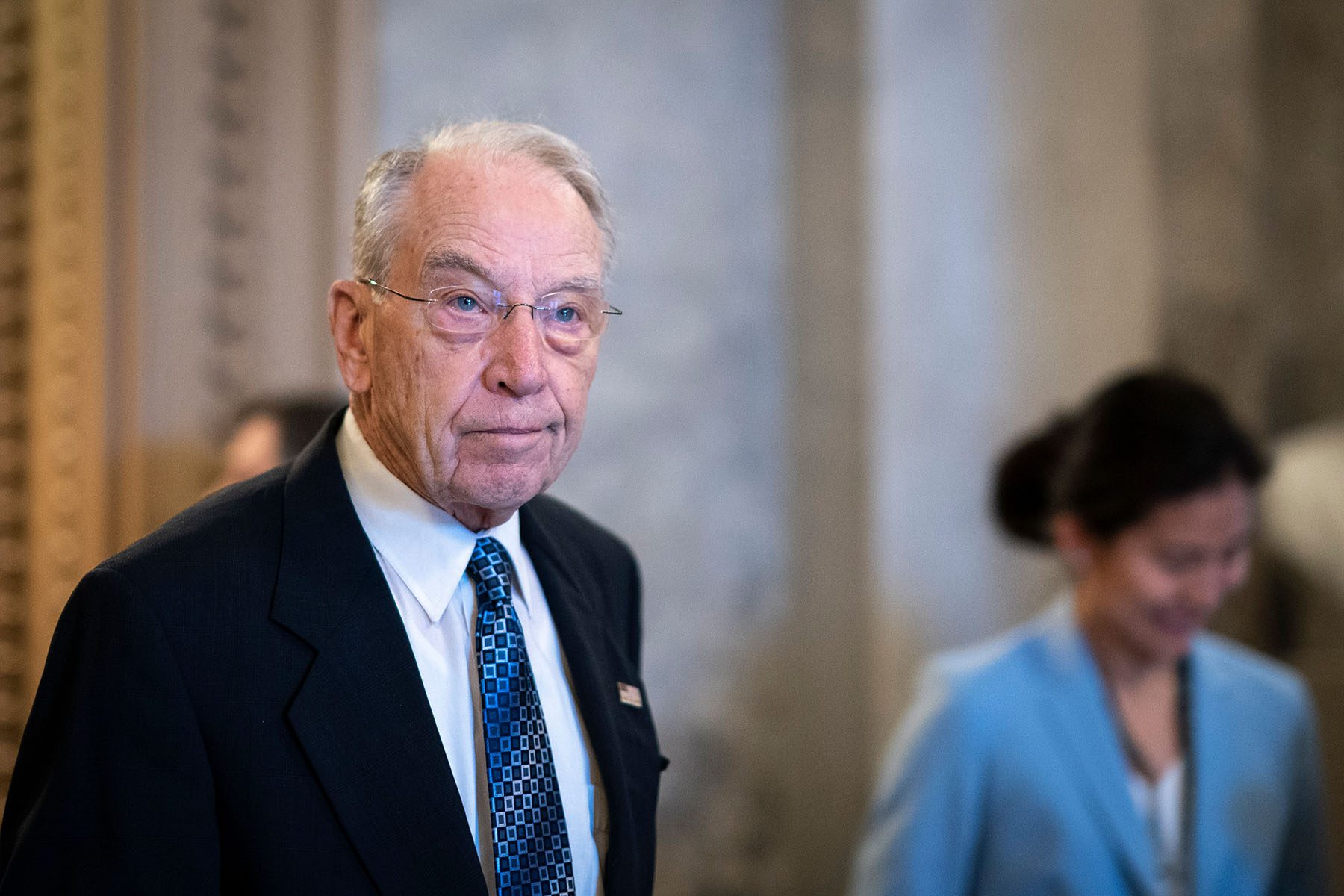
Said abortion should be left to the states: Yes
Backed federal legislation restricting abortion: Yes, pre-Dobbs
Since the Dobbs decision, Grassley has said abortion should be left to the states and “elected representatives,” though he has declined to specify whether that means state or federal officials. In a recent campaign debate, he said he would not support a 15-week ban, but in the past, he has voted in favor of federal abortion restrictions, including a 2020 bill banning abortion at 20 weeks.
Ron Johnson, Wisconsin (incumbent, won)
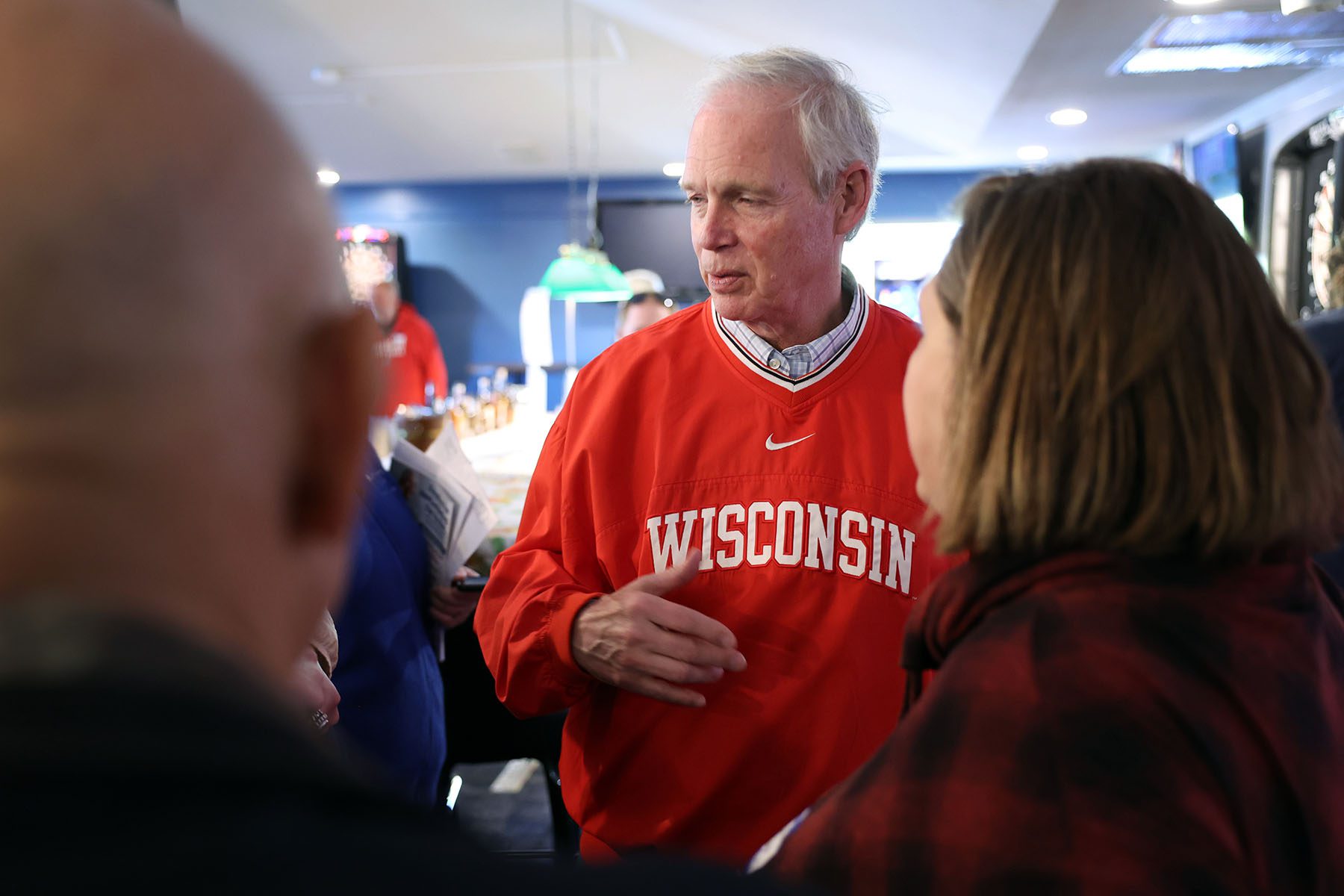
Said abortion should be left to the states: Yes
Backed federal legislation restricting abortion: No
On the campaign trail in August, Johnson said the decision of abortion access should be left to the people, state by state.
“I look forward to every state, the people in every state, hopefully having a serious, compassionate and sympathetic discussion to decide this question, and this is what needs to be decided. At what point does society have the responsibility to protect life?” Johnson said.
However, his spokesperson Alexa Henning, speaking to the Wisconsin State Journal, did not directly answer the question of whether he’d oppose Graham’s proposed ban.
“As the senator has said many times, he believes this is a profound moral issue and agrees with the Dobbs decision to allow the democratic process to unfold in each state to determine at what point does society have the responsibility to protect life,” Henning said.
Adam Laxalt, Nevada (too close to call)
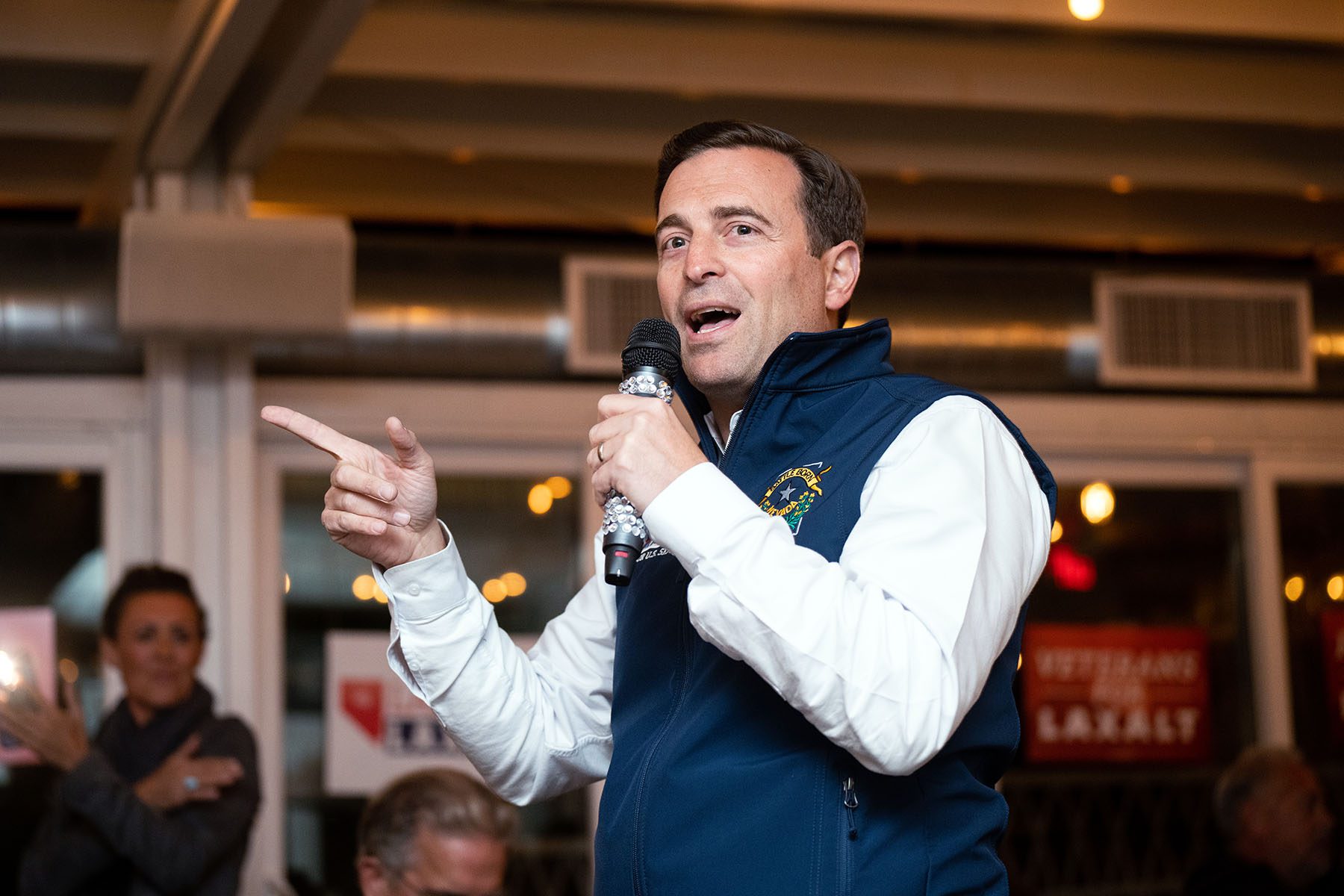
Said abortion should be left to the states: Yes
Backed federal legislation restricting abortion: No
Laxalt has called the Roe v. Wade decision “a joke” and praised the Supreme Court’s decision to overturn it as “a historic victory for the sanctity of life.” But he’s emphasized that abortion is legally protected in Nevada and has repeatedly denied that he supports any federal restrictions.
“My opponent has manufactured a litany of absurdities, falsely claiming that I am in favor of a national abortion ban,” Laxalt wrote in an op-ed in the Reno Gazette-Journal. “That would of course contradict what I have argued for my entire adult life and what the Supreme Court just ordered — to return the issue to the people.”
Mike Lee, Utah (incumbent, won)
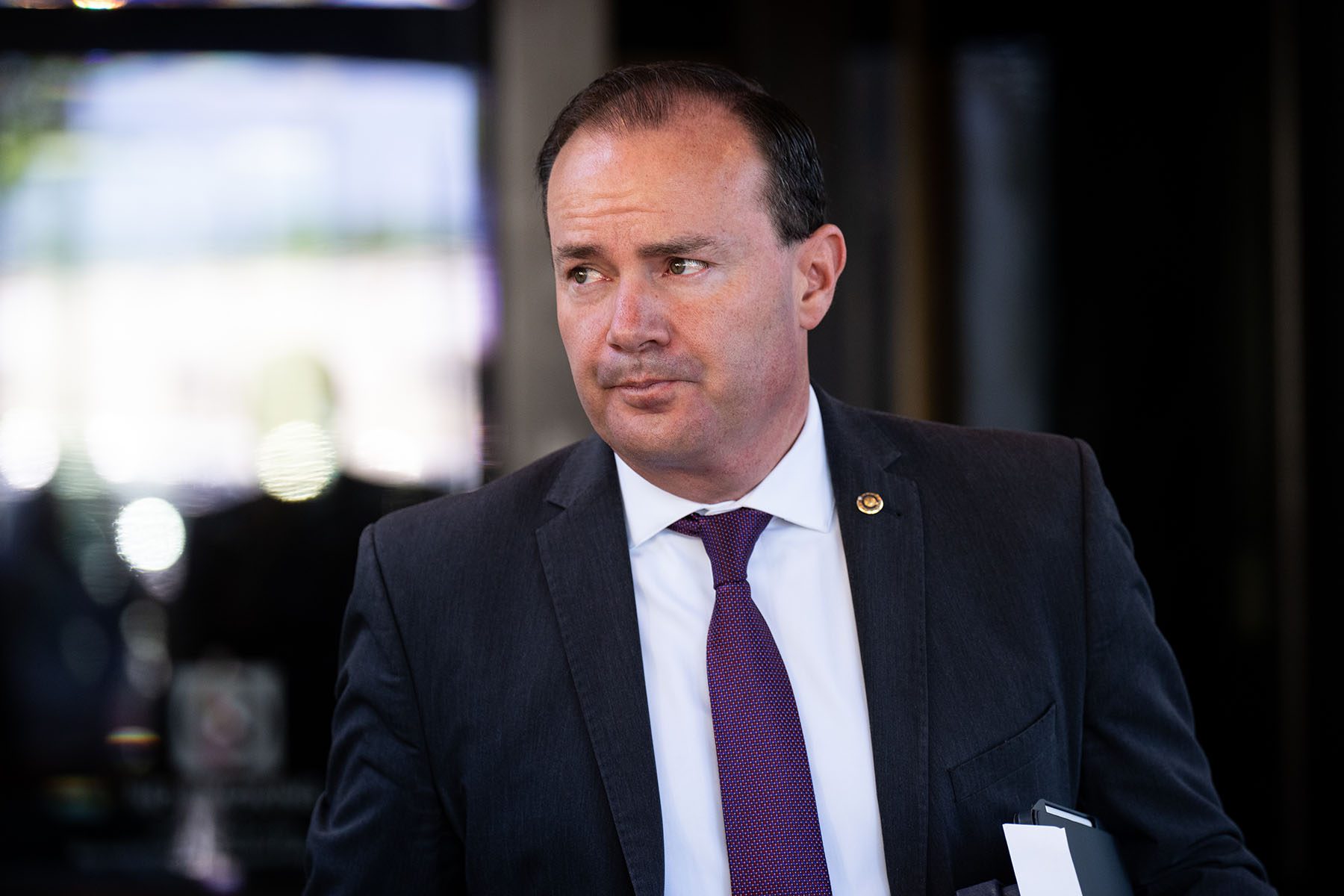
Said abortion should be left to the states: Yes, “most of the time”
Backed federal abortion legislation restricting abortion: Yes, pre-Dobbs
After the Dobbs decision, Lee put out a statement saying that “most of the time,” abortion law should be decided at the state and local level, but added that “in some cases, it might be federal.” It’s not clear what precisely that means. This year, Lee declined to endorse a 15-week abortion ban. Per his campaign site, he favors a national 20-week ban on abortion, which he has voted for in the past.
Blake Masters, Arizona (lost)
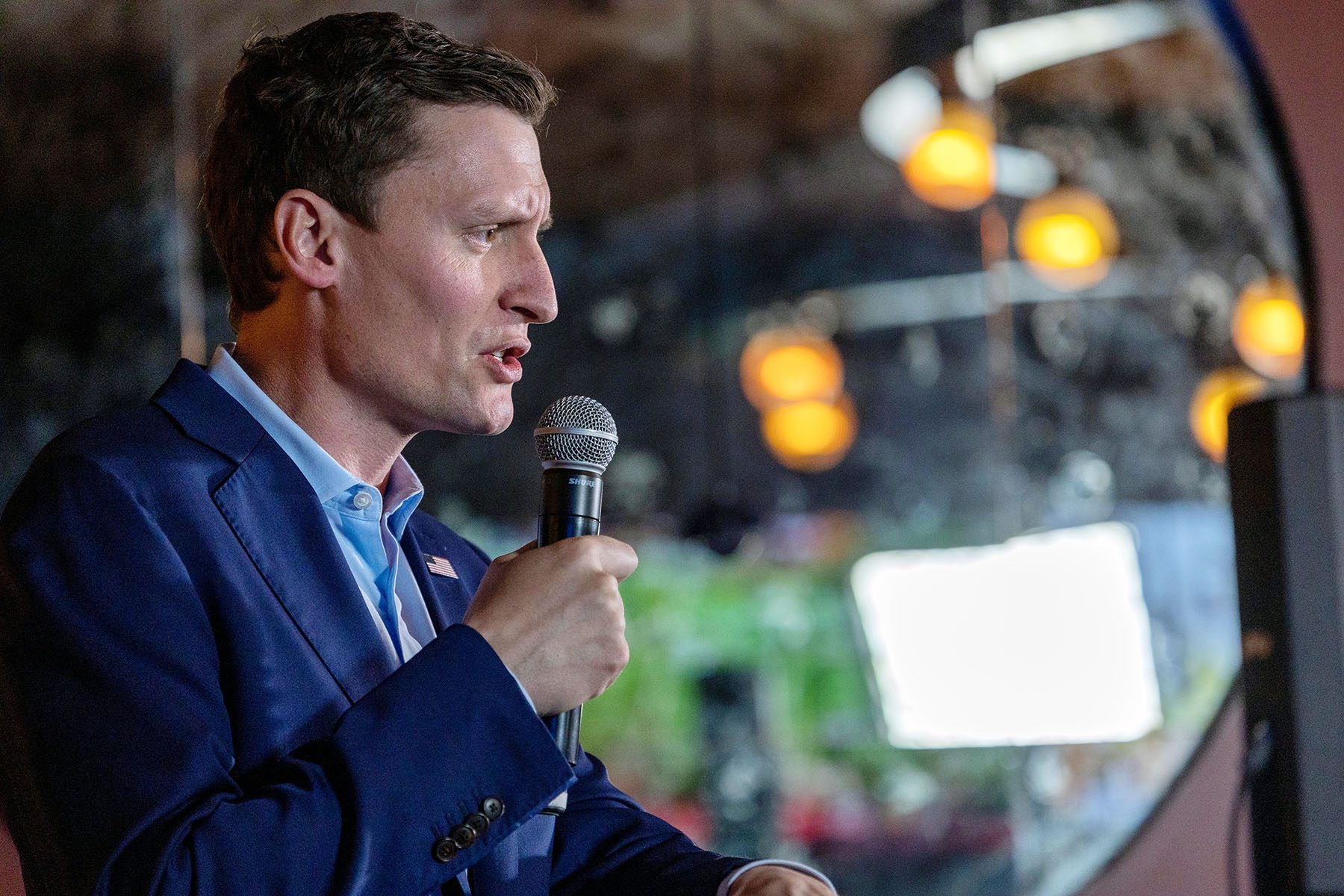
Said abortion should be left to the states: No
Backed federal legislation restricting abortions: Yes
Following the leaked draft of the Dobbs decision, Masters said that leaving abortion to the states did not go far enough. Previously known for his hardline anti-abortion stance, he scrubbed his website of that language and softened his views following the August primary race in Arizona. In an ad posted to Twitter, he referred to his stance as “common sense,” and added he would support an abortion ban with restrictions.
But when Graham announced his proposed federal abortion ban, Masters said he would “of course,” support it and that he hoped it would pass.
Joe O’Dea, Colorado (lost)
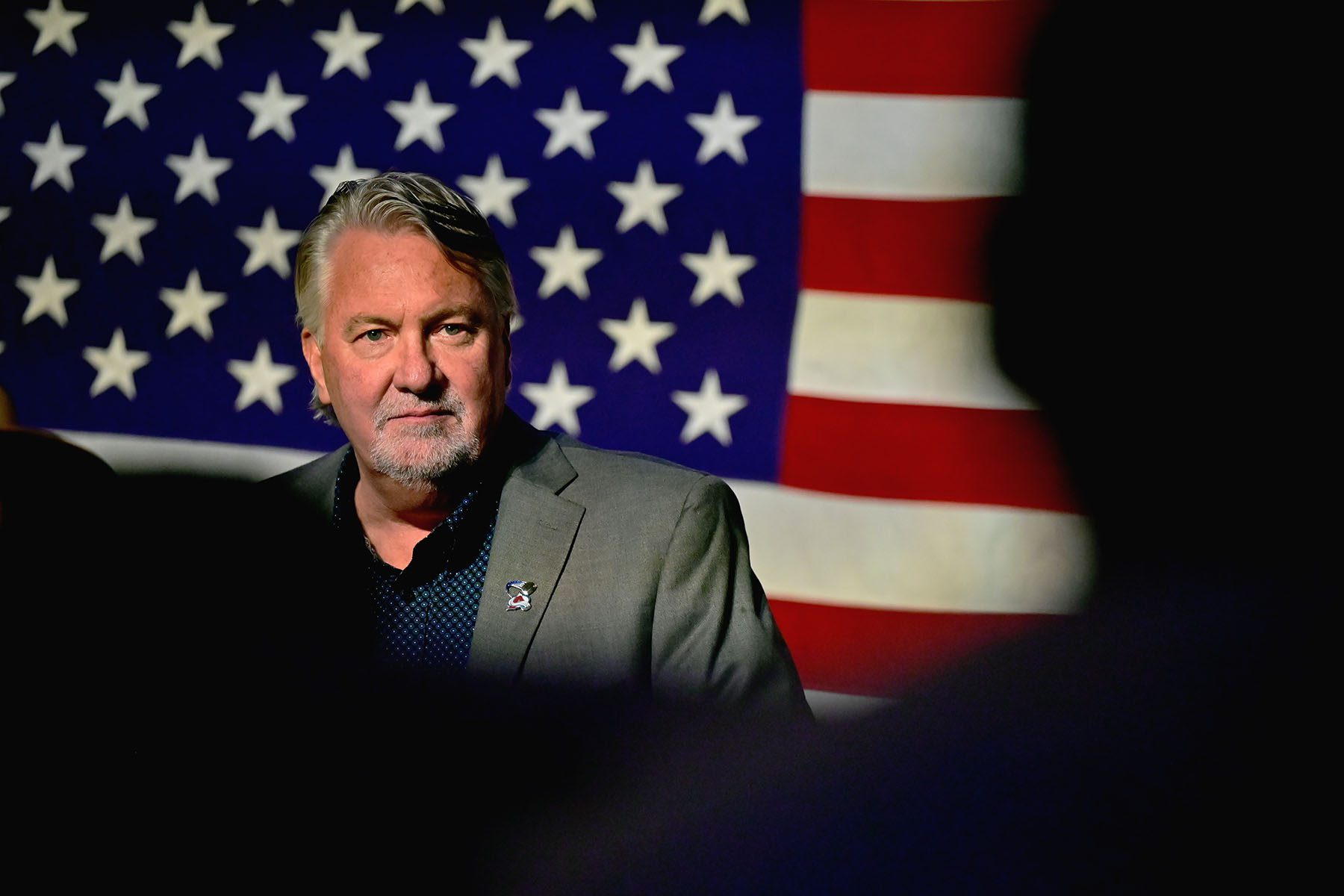
Said abortion should be left to the states: Yes, but would support establishing federal abortion protections up to a certain point in pregnancy
Backed federal legislation restricting abortion: No.
O’Dea is a rare Republican on the ballot in 2022 who largely supports abortion rights. He opposes the Supreme Court’s decision overturning Roe v. Wade and supports allowing abortion up until 20 weeks of pregnancy, with exceptions after that for rape, incest and the patient’s life.
In 2020, he advocated and voted for an unsuccessful ballot measure in Colorado that would have banned abortion after 22 weeks. O’Dea has said he would support codifying abortion rights “early in the pregnancy” and opposes Graham’s proposed 15-week ban.
“Look, I think the first five months are critical. That should be a woman’s decision with her doctor,” O’Dea told NBC’s “Meet the Press.” “And after that, exceptions: rape, incest, medical necessity, those should be, again, between a woman and her doctor. And I’m going to vote that way.”
Mehmet Oz, Pennsylvania (lost)

Said abortion should be left to the states: Yes
Backed federal legislation restricting abortion: No
“There should not be involvement from the federal government in how states decide their abortion decisions,” Oz said in an October 25 debate against Democratic opponent John Fetterman.
“As a physician, I’ve been in the room when there’s some difficult conversations happening — I don’t want the federal government involved with that at all,” Oz added. “I want women, doctors, local political leaders, letting the democracy that’s always allowed our nation to thrive to put the best ideas forward so states can decide for themselves.”
Marco Rubio, Florida (incumbent, won)
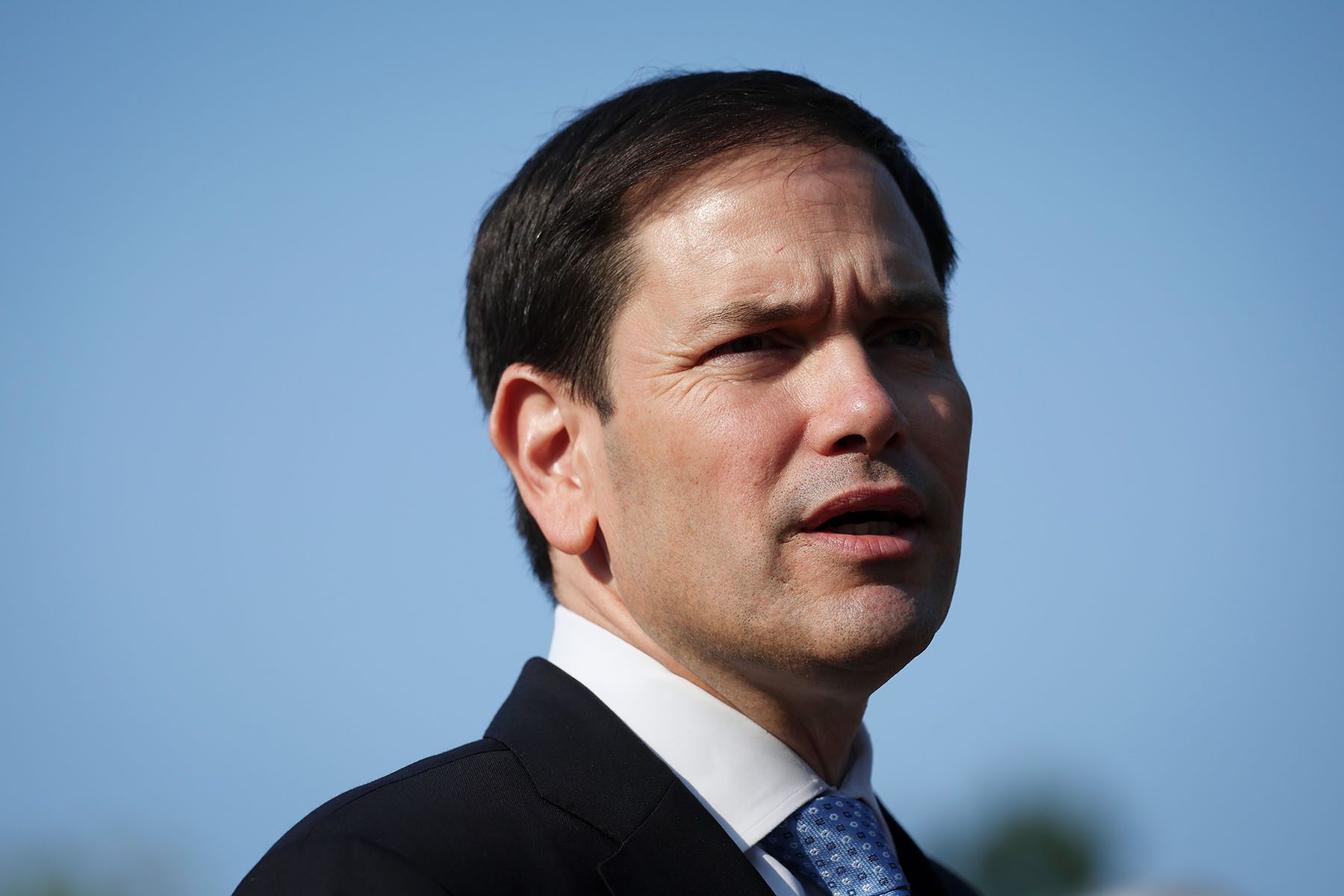
Said abortion should be left to the states: No
Backed federal legislation restricting abortion: Yes
The day the Supreme Court overturned Roe v. Wade, Rubio said on Twitter that the decision “didn’t end abortion rights, it only returned the debate over how to regulate it to elected state legislators.” Three months later, he was one of the few senators to co-sponsor Graham’s bill for a 15-week national abortion ban. Rubio has also said he opposes exceptions to abortion bans in cases of rape and incest.
Tiffany Smiley, Washington (lost)
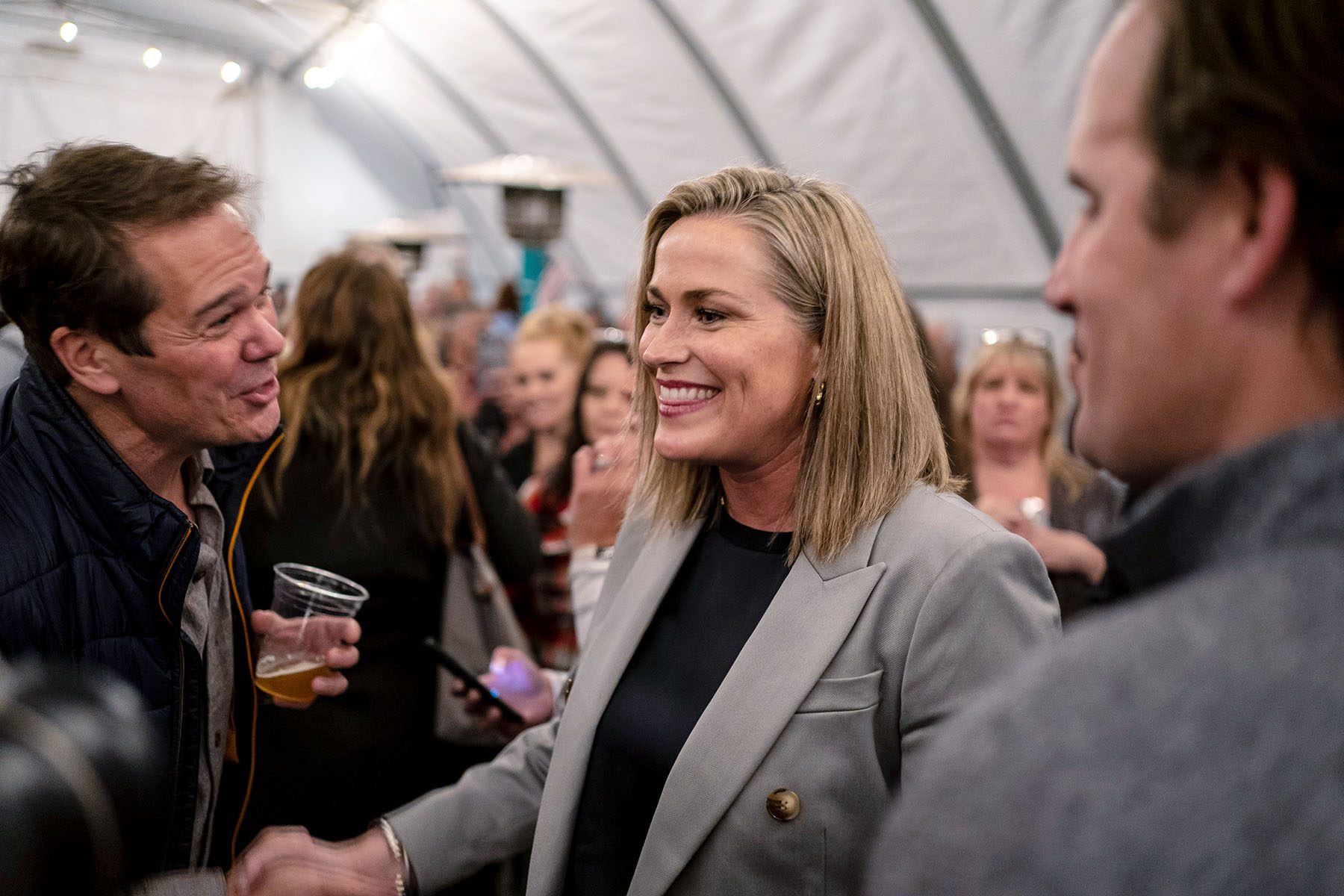
Said abortion should be left to the states: Yes
Backed federal legislation restricting abortions: No
“I’m pro-life, but I oppose a federal abortion ban,” Smiley said in a campaign ad.
Smiley and her campaign spokesperson have repeatedly taken this position, adding that the decision should be left up to the states.
J.D. Vance, Ohio (won)
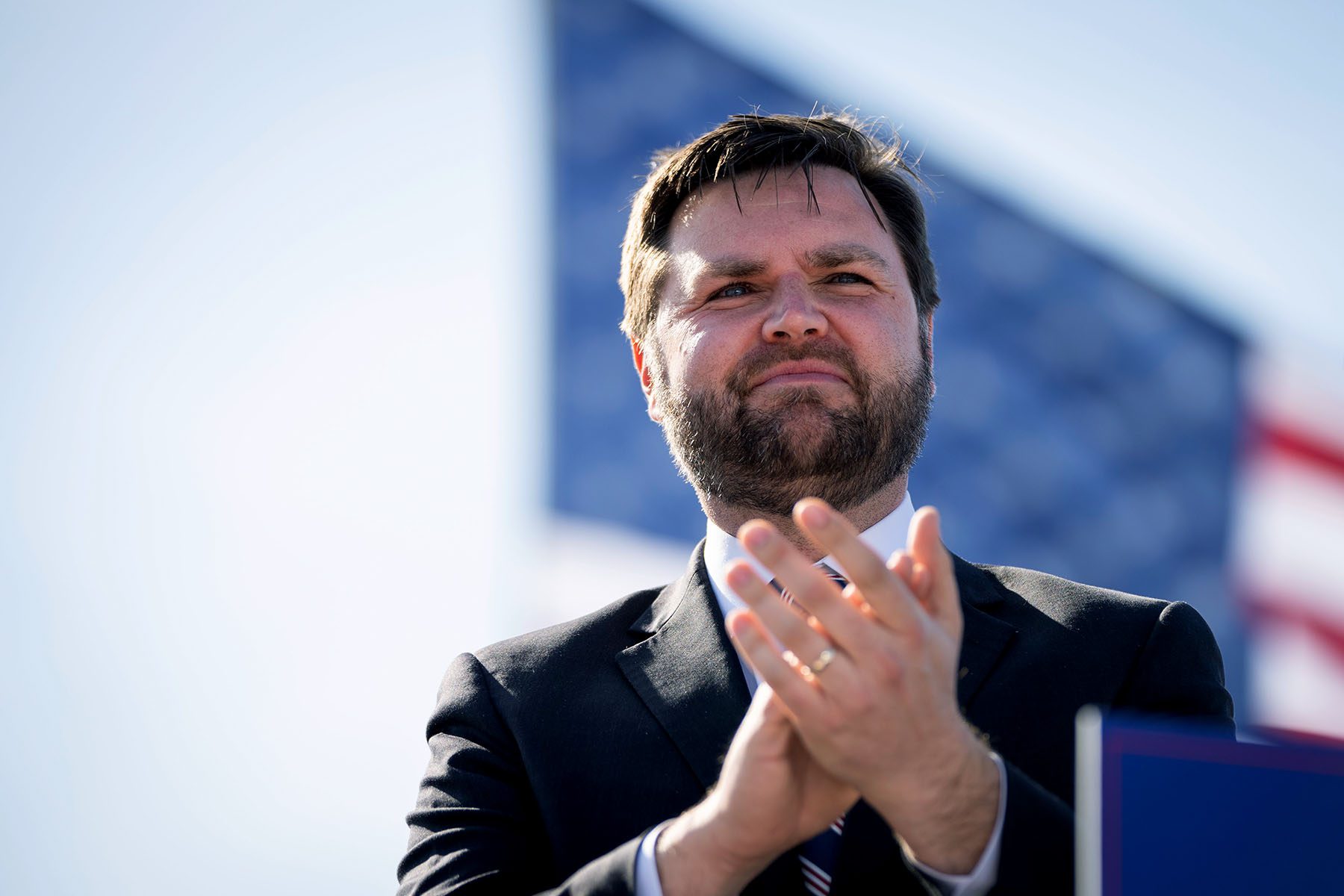
Said abortion should be left to the states: Yes
Backed federal limit restricting abortion: Yes
In a Fox News town hall with Democratic Rep. Tim Ryan just before the midterms, Vance said that “90 percent” of abortion decisions should be left to states, and referred to Graham’s bill that would ban abortion after 15 weeks, saying it “provides reasonable exceptions but it also sets a minimum national standard and I think that that’s a good idea.” Vance has also said he opposes exceptions to abortion bas in cases of rape and incest.
Herschel Walker, Georgia (runoff)
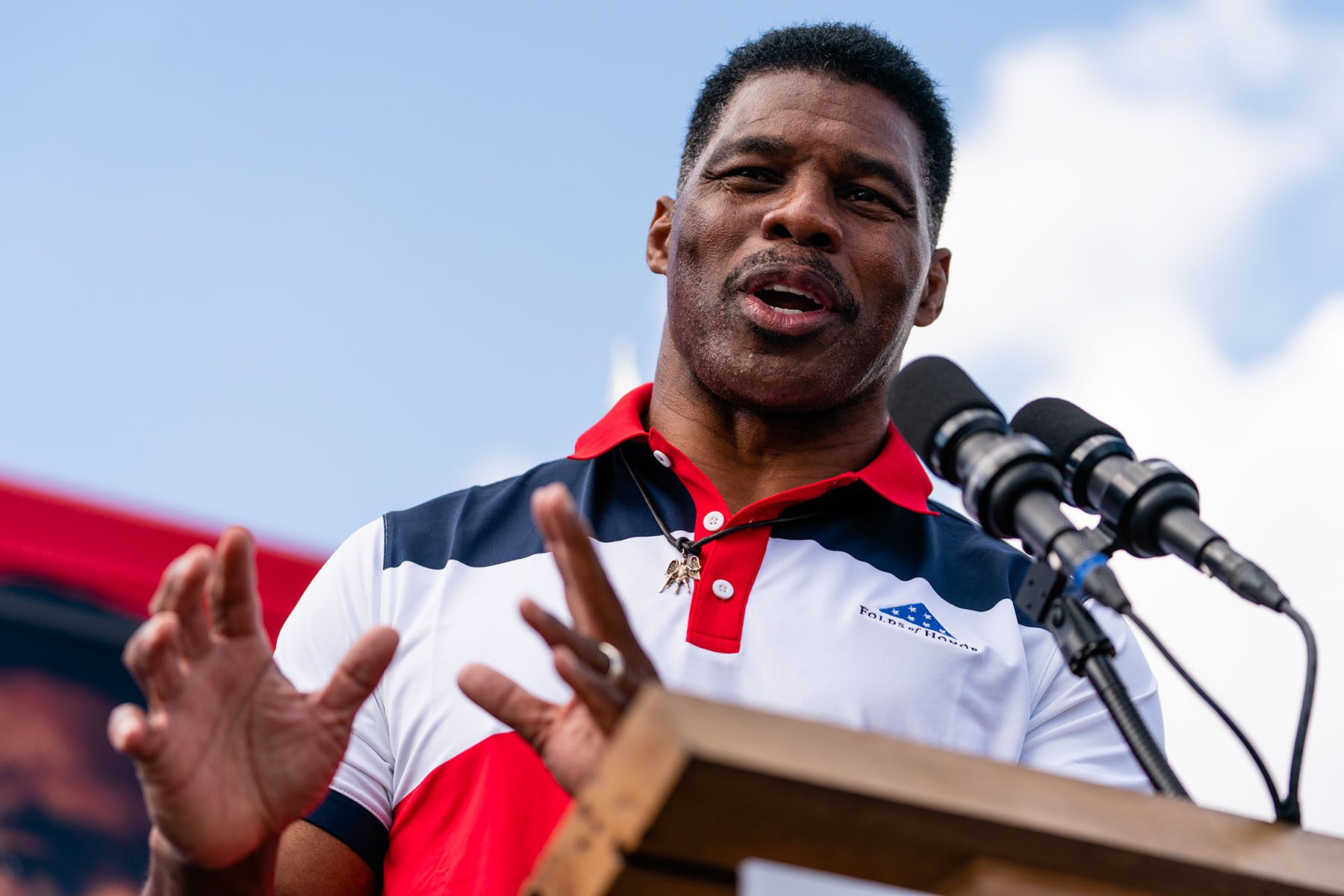
Said abortion should be left to the states: Yes
Backed federal legislation restricting abortion: Yes, but later denied
Walker said multiple times that he would support a federal ban. In July, he stated that it is a problem that there is not one already in place. Then in September, said he would back Graham’s bill.
“I am a proud pro-life Christian, and I will always stand up for our unborn children. I believe the issue should be decided at the state level, but I WOULD support this policy,” Walker said then.
But last month, Walker denied his support of a federal abortion ban during a debate with Democratic opponent Raphael Warnock, saying that his position was misconstrued.



